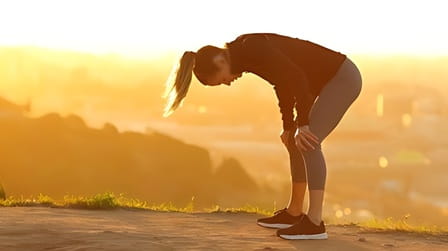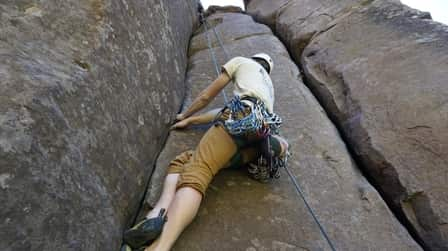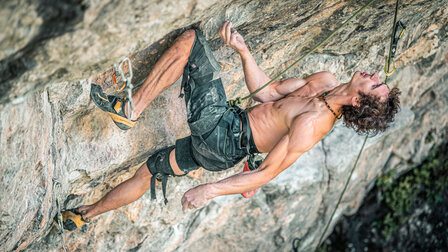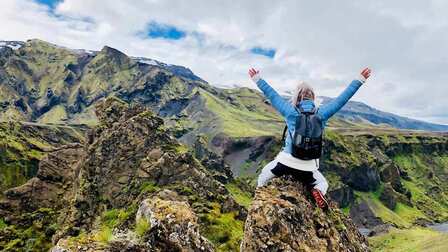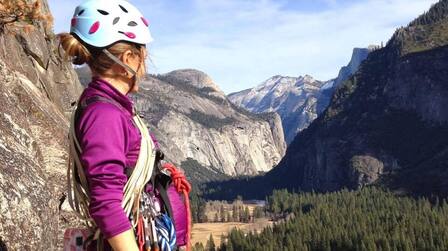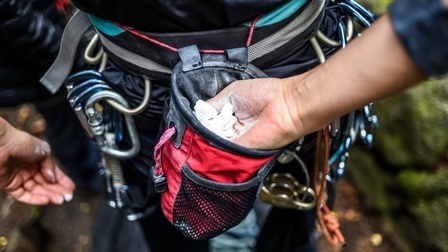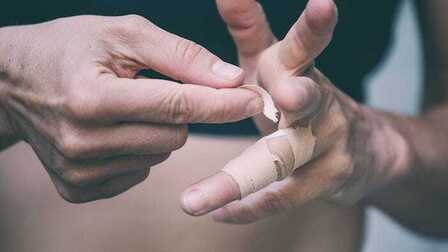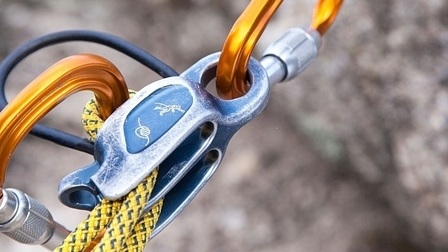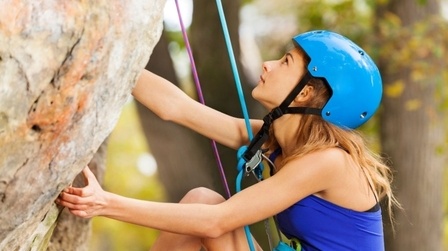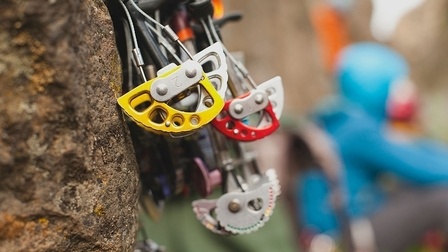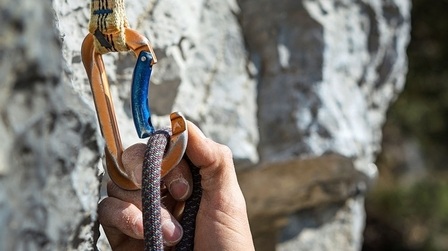Mountain climbing is a great sport. You want to become stronger. Mountain climbing is a sport that is physically challenging, increasing the ability to solve problems. Give it a try, you will definitely be fascinated by them all.
Climbing can be costly, difficult to find a guide, and can be dangerous if you do not do it properly. Here, we've put together a list of tips to help you gain the knowledge you need to climb, whether you are a beginner to the sport or have played for many years.
1. Choose the right trip (route)
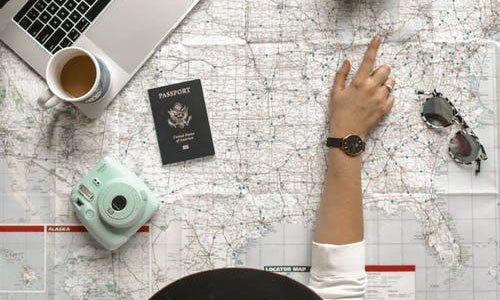
One of the first tips to look out for when starting a hike is to choose a route that suits your abilities. In gyms, mountain climbing is often labelled, distinguishing difficulty rating; outdoors, you can use a mobile app called Mountain Project to determine how difficult it is to climb a mountain, or you can also use a guidebook. Nowadays, there are also many types of books that can be of help to you.
2. Buy the right equipment so you don't waste money

Currently, in rooms with climbing categories, or at climbing locations, there are many shops that rent climbing equipment. However, if every time you climb the mountain, you rent equipment, it will cost a lot of money.
If you are determined to take the subject permanently, you should purchase your own equipment. This is a better long-term investment. And you will be able to buy equipment that suits your preferences.
As a beginner, you can buy some necessary gear first, like mountain climbing shoes, chalk bags, chalk, belly device, carabiner buckle, helmet (if you are outdoor climbing)
However, you do not need all the equipment. You may not be able to climb out enough to secure hundreds of dollars off for some items.
Make a list of equipment to buy before going to the store, avoid wasting buying unnecessary equipment.
3. Choose the right shoes

For those who are just starting out in this mountaineering sport, we recommend finding a comfortable pair of climbing shoes. Don't be persuaded by the salesperson at the shoe store to buy shoes that are too tight. The right shoes are very important. Don't be too frugal on buying them. Remember that quality comes with price.
4. Climb with your feet

When climbing, your weight will be on your feet. Foot climbing - This is the most important technique in mountain climbing - but many beginner climbers ignore it and ignore it. Our lower body is much stronger than our upper body and as much as possible when climbing when you want your weight to be in your feet.
5. Keep your weight on your skeleton
When hanging, try to keep your arms straight, instead of bending your arms and keeping them close to the wall. With this move, your muscles will have a chance to rest more instead of working continuously.
6. Rest when possible
With any climbing skill, rest is probably very important. Because the sport takes a lot of effort, it gets tiring very quickly, so on a long journey, from the moment you start the climbing journey, drop one or both arms down and take advantage of the opportunity. To shake off your muscles, there is time to recover.
7. Adjust your breathing

Have you ever climbed a mountain? Have you ever practiced Elvis legs? When you are scared or tired, or when you exercise vigorously, do you feel your legs are constantly shaking? This happens because of the lack of oxygen in the body. Therefore, you need to practice deep breathing with each movement as you climb and when you rest.
Breathing is an essential technique to calm your mind and train your ability to focus.
8. Always think positively
There is a saying, “If you think you can, you can. If you think you can't, you can't ”. Positive, willing and excited thinking, is essential for recognition and growth.
If fear is a big problem for you, learn to determine your safety. If you are nervous, you can hardly climb the mountain.
Mountain climbing is a sport, but you can learn an incredible amount of life lessons from it if you are ready to go.
9. Find a partner to join you in mountain climbing

All activities will become more fun if you join with friends. Mountain climbing is no different. If you are a beginner, try to find a friend who is interested in participating in this sport with you. Or exchange phone numbers, make friends with a beginner at your climbing gym. It's not too difficult to find someone to accompany you.
During the hike, you should have a companion. It's usually not too hard to find someone to pamper you after you get to the gym, but it's much easier to get to the gym on your own if you have someone with you.
10. Make a habit of climbing by joining a class or group
One of the more tips for getting yourself engaged and serious about climbing is to join a class or training group at your gym. It will help you to improve your climbing ability when you first get started.
Join the group, you will have someone to guide you warm-up, leg exercise, rock climbing, outdoor exercise, …
Join any group, you will have a periodic training schedule.
This will be easier for you to make it a habit.
11. Do a basic warm-up and do it before each hike
To minimize injury during climbing, it is best to warm up thoroughly before climbing. We all know this, but not all climbers do it. There are many climbers who don't do that.
Not too fussy, you just need to warm up with basic movements, not cumbersome that can be done in a short time (about 10 minutes). A basic warm-up can be just a combination of some simple exercises. You need to get into a warm-up routine before climbing.
12. Take care of your calluses

When you climb the mountain for a while, you will see some calluses. You should learn some creams, or some ways to limit calluses.
13. Practice Falling
This tip sounds a bit ridiculous. But you need to know that falling is an inevitable part of climbing mountains. So practice falling, you can do it well too.
For boulders, you should learn to fall properly to limit your chances of getting hurt. You can fall a lot during the hike, so learning how to fall now can save your ankles, knees and hips from a collision.
14. Use Lots of Powder & Don't Use Lotions
Using climbing powder will help you grip better, in addition to helping your hands always dry and avoid blistering. After climbing, don't use hand lotion. Anyone doesn't want their hands to look old, so most people are in the habit of using lotion. However, when climbing, you need to keep your hands as dry as possible. Moisture will cause more blistering.
Conclusion
In short, mountain climbing is an experienced sport, but if you are not careful and equipped with your skills, you could be in danger. It is important that you maintain safety at all times.
Here, we provide tips for those who are just starting out in the sport.

